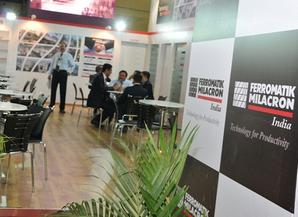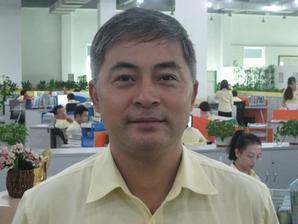By Steve Toloken
STAFF REPORTER / ASIA BUREAU CHIEF
Published: May 13, 2014 4:44 pm ET
Updated: May 13, 2014 4:53 pm ET

Image By: Ferromatik Milacron India Pvt. Ltd.
Ferromatik Milacron India Pvt. Ltd. is one of four injection molding press makers in India encouraging India to keep anti-dumping tariffs in place.
India’s government has begun a review of the steep anti-dumping tariffs it put on Chinese-made injection molding machines in 2009, after four of the largest Indian press manufacturers urged that the duties remain in place.
The May 9 announcement from India’s Ministry of Commerce and Industry said that four press makers with factories in India have asked the government to continue the tariffs — Toshiba Machine (Chennai) Pvt. Ltd., Ferromatik Milacron India Pvt. Ltd., Windsor Machines Ltd. and Electronica Plastic Machines Ltd.
The original decision levied tariffs of up to 223 percent on Chinese-made molding machines, from 40-1,000 metric tons of clamping force, and prompted strong protests from China’s industry and government because it effectively closed India’s market to them.
The Indian government’s announcement of a review was largely expected because the original tariffs put in place in 2009 were due to expire May 12. But it seems likely to set off some strong lobbying in the next few months as the review is conducted.
The Ministry’s statement does not indicate which way it will rule, although it noted that the four companies filed an application “alleging likelihood of continuation or recurrence of dumping of the subject goods.”
The head of the Plastics Machinery Manufacturers Association of India had said in an interview at the Plastivision show in Mumbai in December that he expected the tariffs to continue.
Mahendra Patel, who is also chairman of Mamata Machinery Pvt. Ltd., said that the Indian industry has “reported very strongly and we have all positive signals."
Patel could not be reached and an official with the New Delhi-based PMMAI declined to comment.
Reached by telephone, the managing director of Toshiba’s Chennai factory, P. Kailas, said he was not sure what the government would decide. But he said that if the tariffs are continued, the rates of the penalty duties could change.
The chairman of the China Plastics Machinery Industry Association, Borch Zhu, could not be reached for comment but he had said in an interview at the Chinaplas show last month that the Chinese industry opposed the tariffs continuing, although he suggested it could be difficult for the Chinese industry to win.

Image By: Steve Toloken
Borch Zhu
Zhu estimated that the tariffs raise prices 20 percent for Indian companies buying injection molding machines, and ultimately harm the Indian processing industry.
He is also president of the Guangzhou-based injection molding machinery maker Borch Machinery Co. Ltd.
The Indian government announcement said that companies and interested parties have 40 days from the publication of the announcement to submit comments. Industry officials said it could take several months for a final decision.
One well-placed Chinese industry official said Chinese companies met with their government in early April to prepare.
This source noted that two of the Indian petitioners — Toshiba and Ferromatik Milacron — were global companies that also had factories in China, and were able to benefit from China’s open policies toward foreign equipment makers.
“But now, to protect their private profit, they use the government to close their market,” the source said.
Japan’s Toshiba Machine Co. Ltd. bought the Chennai factory from Indian conglomerate Larsen & Toubro in 2012, and the Ferromatik Milacron India factory is a unit of U.S.-based Milacron LLC. Both companies have said recently they plan to expand their Indian operations. | 